Australian Anna Broinowski’s book shows life inside North Korea’s film industry
HE’S a six-foot tall blond who looks like a typical American. But this is actually North Korea’s most famous villain, as one Aussie discovered.
Books & Magazines
Don't miss out on the headlines from Books & Magazines. Followed categories will be added to My News.
THEY’RE six-foot tall blondes who could easily pass as American war heroes — only the Dresnok brothers have never set foot outside North Korea.
They’re the sons of American GI Joe Dresnok who defected to the isolated and secretive country in 1962 and made a living as North Korea’s premier villain for hire, starring as the token Yankee in films produced with a cast of thousands and full use of an army, navy and air force fleet in lieu of special effects.
Now his sons have taken up the family business and are the men Anna Broinowski found herself opposite while in North Korea making her own documentary. The Australian is the first Westerner to gain access to North Korea’s film industry cultivated under renowned movie buff Kim Jong Il. While there she was recruited to play an evil American secretary in a film shot on the decks of the Pueblo — a US navy vessel captured by North Korea in 1968.
“I found myself in a bowling alley with pictures of Lady Di on the wall, bowling beside a six-foot-two, blue-eyed blond American looking bloke who is the son of a defected American GI,” she told news.com.au.
“They hated me on sight. I was the enemy. Even though they were crap actors they had to carry on their father’s traditions. They were playing the captains of the ship.”
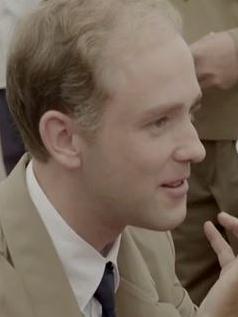
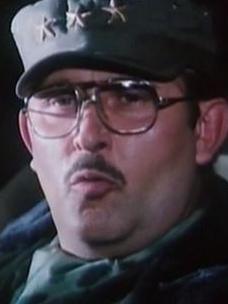
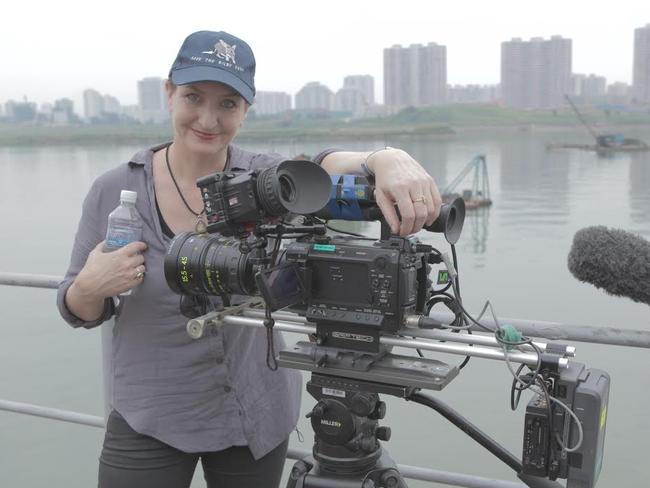
THE DIRECTOR IS THE COMMANDER
The bizarre scene was one of many Ms Broinowski found herself in while spending three weeks in North Korea making her documentary Aim High in Creation according to the principles of former leader Kim Jong-Ils 1987 Manifesto The Cinema and Directing.
Her recent book, The Director is the Commander, describes the experience which began when she was given a copy of the manifesto as a birthday present. After wondering what it would be like to make a modern film according to the same principles she worked for years to secure a visa to Pyongyang and arrived following the breakdown of her ten-year marriage.
“It took two years to get in with full access to the film industry. The top writers, composers and movie stars” she said. “I know I’m the only Westerner to be given full access.”
“Everyone knows about the evil side. I wanted to find out about the people we never hear about. What movies do they love? What stories do they love? ... Making a film in the style of Kim Jong Il was like my Trojan horse, my way of getting in there.”
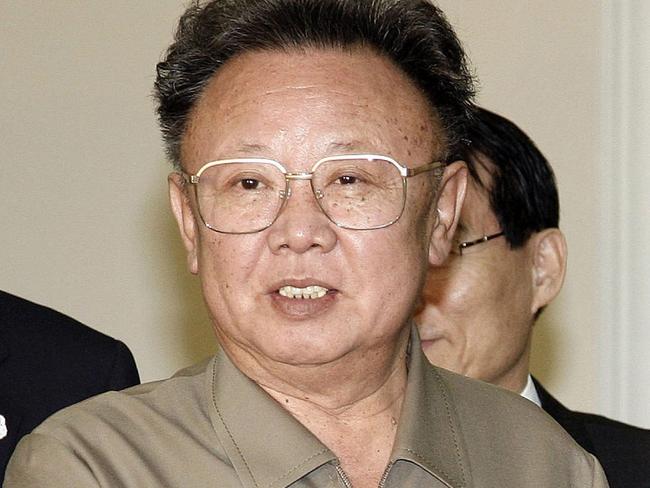
It’s a rare entry into the secretive and absurd world of North Korea’s film industry cultivated by the late Dear Leader whose passion for the screen saw him amass a collection of 20,000 films stored privately in the capital, and abduct South Korea’s two biggest movie stars in order to produce his own movies.
Once there, Ms Broinowski was whisked to a surreal lunch with North Korea’s version of Oliver Stone and Martin Scorsese for a “disturbing” banquet where the North Koreans worked out whether or not she could be trusted.
“I wasn’t expecting within two to three hours of landing I (would find) myself sitting around a banquet table in a fake Swiss chalet which is part of Kim Jong Il’s European film set.”
“Within about an hour all of these filmmakers were toasting each other and drinking Soju and partying and telling anti-Soviet jokes and having a great time.”
She spent the next three weeks soaking up every aspect of the industry in a country with no internet and only one television station. She said for those who have enough food and shelter to contemplate entertainment, cinema is the only option with some surprising movies beloved by the general population and filmmaking community: The Sound of Music, Star Wars, Bend it like Beckham and Avatar.
“North Korea doesn’t have gaming or the internet or reality TV. It has been locked out since the 1950s. In that culture, television and film was the primary way to be entertained. They had a captive audience. Everyone goes [to the cinema]. They are designed to keep the populace enthralled with the social paradise in which they supposedly lived.”
“Of course they’re making propaganda films but they’re like filmmakers anywhere trying to tell stories about humanity. They make films across a lot of genres. Their films are everything from rom-coms to monster movies to military actions films, buddy movies, coming of age films,” she said.

‘A NUANCED APPROACH’
It’s a side we don’t often see to a country condemned for “unspeakable atrocities” against its citizens including extermination, murder, enslavement, torture, prison and rape, according to the UN. It’s been accused of executing Defence Minister Hyon-Yong-Chol by anti-aircraft guns for dozing off during speeches and masterminding the Sony Pictures hack following satirical film The Interview, based on a plot to kill Kim Jong Un.
Ms Broinowski said she is “not for one second an apologist for the regimen” but is interested in creating a more nuanced view of the country that people don’t usually see.
“I’m simply trying to add another layer to the picture,” she said adding that the North Koreans she met were “not at all different” from South Koreans on a personal level.
“They grow up in a bubble. There was a sense of genuine love for Kim Jong ll as an artist. He’s kind of a dictator who got the wrong job in a way. There was a massive respect for him and I didn’t get the sense of anyone being outwardly subversive.”
However with every move tracked by a man in black who was never introduced but would sit in the background taking notes, she said the reality of the regime is never far from the minds of those working there.
“There were very few moments where I saw the cracks,” she said, adding that one such time occurred at a drinking session after a day of shooting then one filmmaker confessed the country “isn’t like the way it was” before being hushed by another.
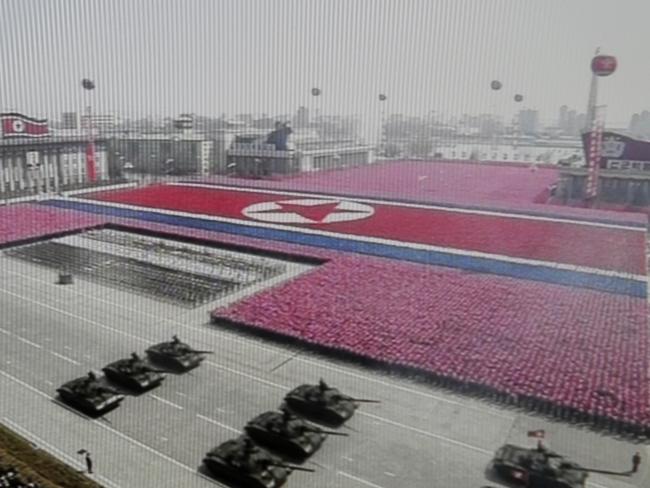
Ms Broinowski said she would love to go back to North Korea but probably wouldn’t be welcomed by the regimen which obsesses over what is printed about them from the world outside. However despite the reign of terror and atrocities committed there, she thinks its crucial to build cultural connections in order to bring the country back into the international community.
“There is a vested interest in having the world think North Korea is a brainwashed hellhole. I’m much more interested in trying to understand their people ... and separating their people from the regime”
“I think it’s high time we had a more nuanced approach to trying to understand North Korea. It’s absolutely right to damn the regimen. It’s absolutely right to criticise the brutality of the dictatorship and appalling way common people are denied resources. But I believe very strongly that cultural diplomacy and not military threats and god forbid war, is going to be the only way we can peacefully open the country up.”
The Director is the Commander is published by Penguin Books.
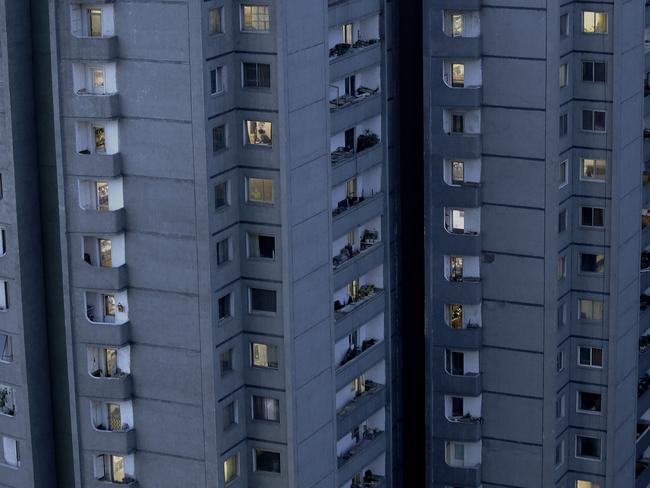
Originally published as Australian Anna Broinowski’s book shows life inside North Korea’s film industry

